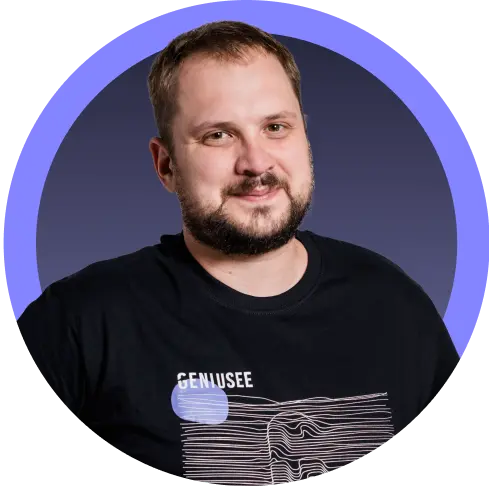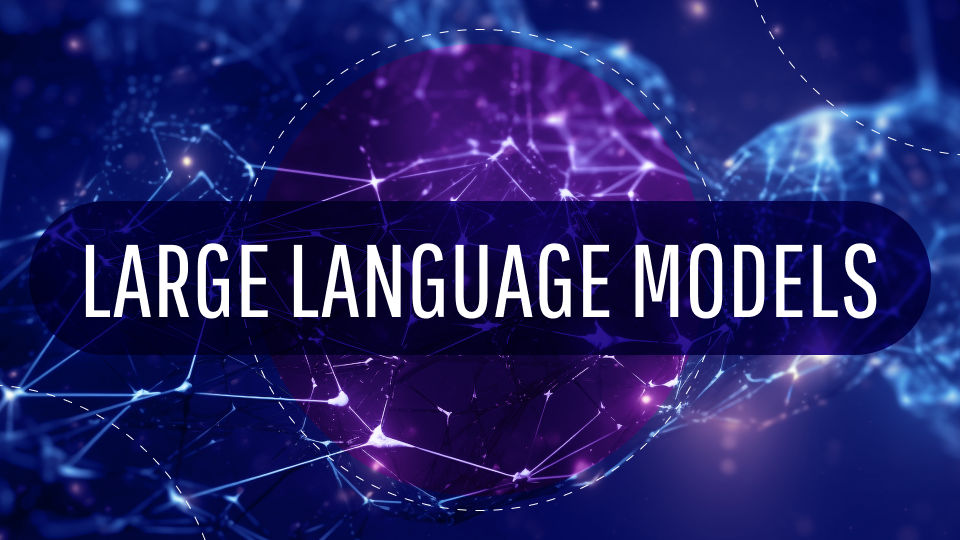You spend hours debugging, only for an AI assistant like Claude to suggest a fix in seconds. No surprise developers are asking: Will AI replace me? According to the 2025 Stack Overflow Developer Survey, 69% of developers said these tools boosted their productivity. But does that mean the rise of AI will edge out human programmers — or just make their work easier?
With tools like Claude, ChatGPT, and GitHub Copilot improving at writing and understanding code, the role of the human programmer is being redefined. But does faster code generation signal a fundamental shift in the role of human programmers? Let’s take a closer look at the shifts.
Key takeaways
How AI speeds up and complicates coding
Why bias and bad practices creep in
The security blind spot of AI-written code
Human oversight isn’t optional
What happens to junior developer roles
The rise of AI-skilled engineers
From coding to problem-solving: the new focus
AI in the modern coding workflow
Big data and AI have quickly become part of developers’ daily work. AI agents can now write, analyze, and even reason about code. Yet, what does this actually mean for developers? Let’s look at how these tools are being used today.
The evolution of AI coding tools
AI’s role has grown from a passive assistant offering syntax suggestions to a semi-autonomous co-coder. Early tools like autocomplete have evolved into systems that produce entire code blocks, functions, and even tests.
The most remarkable examples today are GitHub Copilot, ChatGPT, and Claude. These tools not only respond to queries but also provide context, documentation, and, in some cases, even architectural guidance. Copilot integrates directly into IDEs, while Claude and ChatGPT use multi-turn reasoning to tackle development challenges or explore unfamiliar APIs.
More importantly, natural language has become a valid interface for writing code. This shift opens the door for non-traditional developers, product managers, and QA teams to contribute technically by interacting with AI intermediaries.
How developers use AI today
Developers now use AI not only for repetitive tasks but also to accelerate broader development workflows. They apply AI for code debugging, building tests, managing projects, and even trying out new technologies.
AI handles tedious tasks that few people enjoy, such as debugging old code and writing documentation. It can also be used as an on-demand tutor, allowing you to learn new frameworks and languages more quickly.
AI tools are not flawless. While they can enhance productivity, outputs still require careful human review and team collaboration. The pace of development would be feasible with the use of AI. Nevertheless, it does not exclude the need for teams to work together and review the code and architecture strategy.
Summary
AI tools still require developers to review and refine their outputs. They are already redesigning how code is written, tested, and interpreted. The human remains in the loop, but the loop is getting faster.


Thank you for Subscription!
What are the pros and cons of AI in software development?
AI tools have quickly become a valuable addition to the developer’s toolkit, but their performance has clear limitations. To use AI effectively, developers need to understand its strengths and limitations.
What is AI good at?
AI excels at repetitive, well-defined coding tasks, freeing developers from time-consuming routine work.
Vital strengths include:
Automating boilerplate code and simple patterns
Speeding up code generation for routine components
Assisting in spotting syntax and style issues during code review
Creating or updating documentation from code context
Helping beginners quickly understand existing codebases by summarizing and explaining
Where does AI fall short?
Despite these strengths, AI lacks deep contextual understanding, which is critical in complex software development.
Its limitations are:
Grasping intricate system architectures and legacy dependencies
Designing original algorithms or tackling unique edge cases
Architectural decisions that involve a business goal and a trade-off
Optimizing software not just for correctness but also for performance and scalability
The knowledge of long-term maintainability and changing project needs
Summary
AI can reliably handle routine operations but cannot tackle complex, context-dependent challenges. People still play a crucial role in creating strategies, making design choices, and stabilizing the software.
What is the developer’s impact?
Despite rapid advances in AI, the contribution of human developers remains essential. The software development extends beyond coding, involving thinking and creativity that AI cannot fully replicate. To see what's coming next in programming, it’s essential to understand why humans still matter.
Why AI won’t replace programmers completely
There are key reasons why software developers won’t be replaced by AI anytime soon:
Creativity and problem-solving are core to programming. AI can generate code, but cannot innovate or design solutions from first principles.
Systems thinking and understanding complex software solutions are areas where human software engineers excel, especially in enterprise projects.
Human oversight is necessary to maintain software quality, especially in critical systems with security and ethical concerns.
Effective collaboration, domain knowledge, and ethical reasoning require human judgment. AI can assist, but it can’t replace devs here.
AI is still limited in interpreting unclear requirements or evolving software development processes that rely on tacit knowledge.
The evolving role of the software engineer
Rather than being fully replaced, the software engineer’s role is evolving in the age of AI. Developers are increasingly expected to:
Guide AI outputs by refining generated code, ensuring it fits architectural goals.
Focus on more complex software solutions, like designing scalable architectures or integrating systems where AI cannot generate code independently.
Collaborate effectively with AI while combining natural-language interactions with traditional coding expertise.
Utilize AI to automate routine tasks during their workflow, freeing up time for stimulation and creative analysis.
Key takeaway
The capabilities that make humans stronger are creativity, critical thinking, and ethical judgment. The future belongs to developers leveraging AI as a companion to create better and more reliable software.
Claude and other AI assistants
It’s worth examining how generative AI assistants like Claude are transforming developers’ workflow. These tools demonstrate both the promise and the current limitations of AI coding.
What does Claude bring to the table?
Claude is an AI assistant built on the latest natural language processing (NLP) methods. It assists developers in writing code, debugging problems, and examining complex software issues through in-depth discussions. Unlike tools that primarily offer autocomplete, Claude can handle multi-turn conversations. This allows developers to:
Clarify coding requirements in natural language
Request explanations or examples of programming concepts
Get help with debugging and refactoring code snippets
Collaborate on architectural decisions through simulated brainstorming sessions
This conversational approach makes Claude especially useful for teams that need more than just code generation but also real software development guidance.
Other AI assistants in the coding workflow
Along with Claude, tools like GitHub Copilot, ChatGPT, and other newer AI-based platforms simplify developers' work:
Automate repetitive coding tasks
Generate boilerplate or routine code faster
Provide instant suggestions for code review
Assist junior developers in learning quickly
Despite these benefits, AI-generated code isn’t reliable for complex tasks. AI can assist but it cannot fully replace programmers at this stage.

More from our blog
Real-time payments are rewiring global FinTech
Real-time payments changed the customers’ instant payment habits. Learn how to keep your digital product in the game.
Read moreAI coding assistant showdown
Feature | Claude | GitHub Copilot | ChatGPT |
Interface | Conversational, multi-turn | IDE autocomplete | Chat-based |
Code generation | Snippets, functions via dialogue | Line/block suggestions | Full snippets, tests, explanations |
Context handling | Strong, across files and concepts | Limited to open file | Good in-session understanding |
Debugging help | Yes, via reasoning | Inline fixes | Yes, conversational guidance |
Learning support | High — explains concepts | Low | High — good for tutoring |
integration | Web, API | Deep IDE (e.g. VS Code) | Web, plugins |
Limitations | Needs oversight, slow for some tasks | Can hallucinate code | May be verbose, accuracy varies |
Dangers, challenges, and ethical dilemmas
Before adopting AI coding assistants such as Claude or ChatGPT, it’s important to understand the risks. These tools raise ethical and technical concerns, such as incorrect recommendations or potential job loss, that developers cannot overlook.
Quality, bias, and security risks in AI-generated code
AI coding tools are fast but not always correct. Issues can arise in the form of distorted functions, subtle bugs, or the use of inappropriate libraries.
Bugs and hallucinations: AI may generate code that compiles but doesn’t function as intended. These issues are often hard to trace.
Over-reliance on AI: Developers may trust output blindly, skipping validation or proper testing.
Bias in models: Poor practices or outdated standards in training data appear in generated code.
Security concerns: Vulnerabilities such as hardcoded credentials or poor input handling are frequently overlooked by AI tools.
To reduce risks, teams must combine AI assistance with strict review processes and real-world testing.
Will AI displace developers or redefine their roles?
Concerns about job displacement are valid, but the impact is nuanced. AI may not eliminate roles, but it will certainly change them:
Fewer junior roles: AI can now handle boilerplate tasks once assigned to entry-level developers, reducing internships and junior positions.
Rise of AI-literate devs: Teams will need engineers who can evaluate, debug, and fine-tune AI-generated code.
Reskilling and upskilling: Junior developers can stay relevant by mastering prompt engineering, code review, and domain-specific expertise.
Rather than replacing talent, AI is likely to push the industry toward more creative, high-level work.
What does the future hold? 2025 and beyond
AI is evolving fast in 2025, reshaping the future of software development. Recent trends and statistics illustrate where the industry is headed. Major shifts include:
20-30% of new code at companies like Microsoft and Google is already AI-generated, with that share rising rapidly
Soon, autonomous AI agents (like Copilot DevOps, Zencoder) automate whole development pipelines: backlog, testing, deployment
According to the CTO of Microsoft, Kevin Scott, up to 95% of the programming code will be AI-generated by 2030.
The size of the AI software market is predicted to experience a growth of 25% by 2030 to reach 467 billion.
These trends signal a future where AI plays the role of a co-pilot, executing tasks from spec to deploy while developers focus on high-level design and quality assurance.
Conclusion
AI coding assistants, LLM agents, and automation tools are transforming the development process, but they are not replacing developers. They are instead updating the role to eliminate repetitive tasks and free up time for architecture, strategy, and innovation. Tools like Claude, which help define requirements, and GitHub Copilot, which streamlines sprints, extend developer productivity rather than replace their work.
The challenge lies not in AI itself but in how teams leverage it.
By 2025, the competitive advantage will no longer come from sheer headcount but from optimizing collaboration between human talent and AI systems. Teams that succeed will:
Identify which tasks to delegate to AI and which to retain for humans
Design AI-native workflows, integrating human and AI contributions
Establish robust feedback loops between human input and AI outputs
Continuously measure, test, and refine AI-generated results
AI in your stack isn't optional anymore — it's strategic. How are you using it? What’s working? What’s not? Share your stack to build the future together.





















